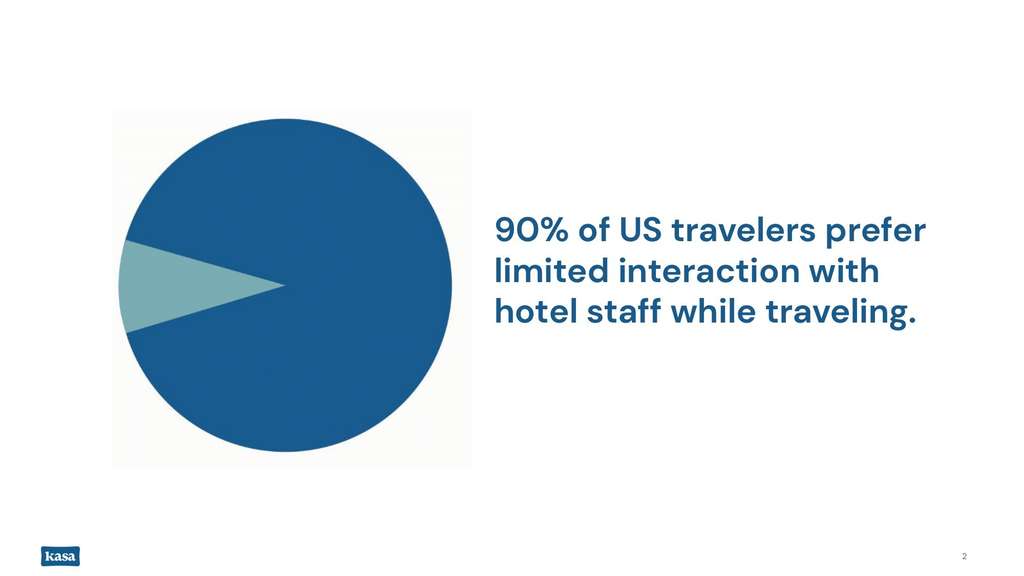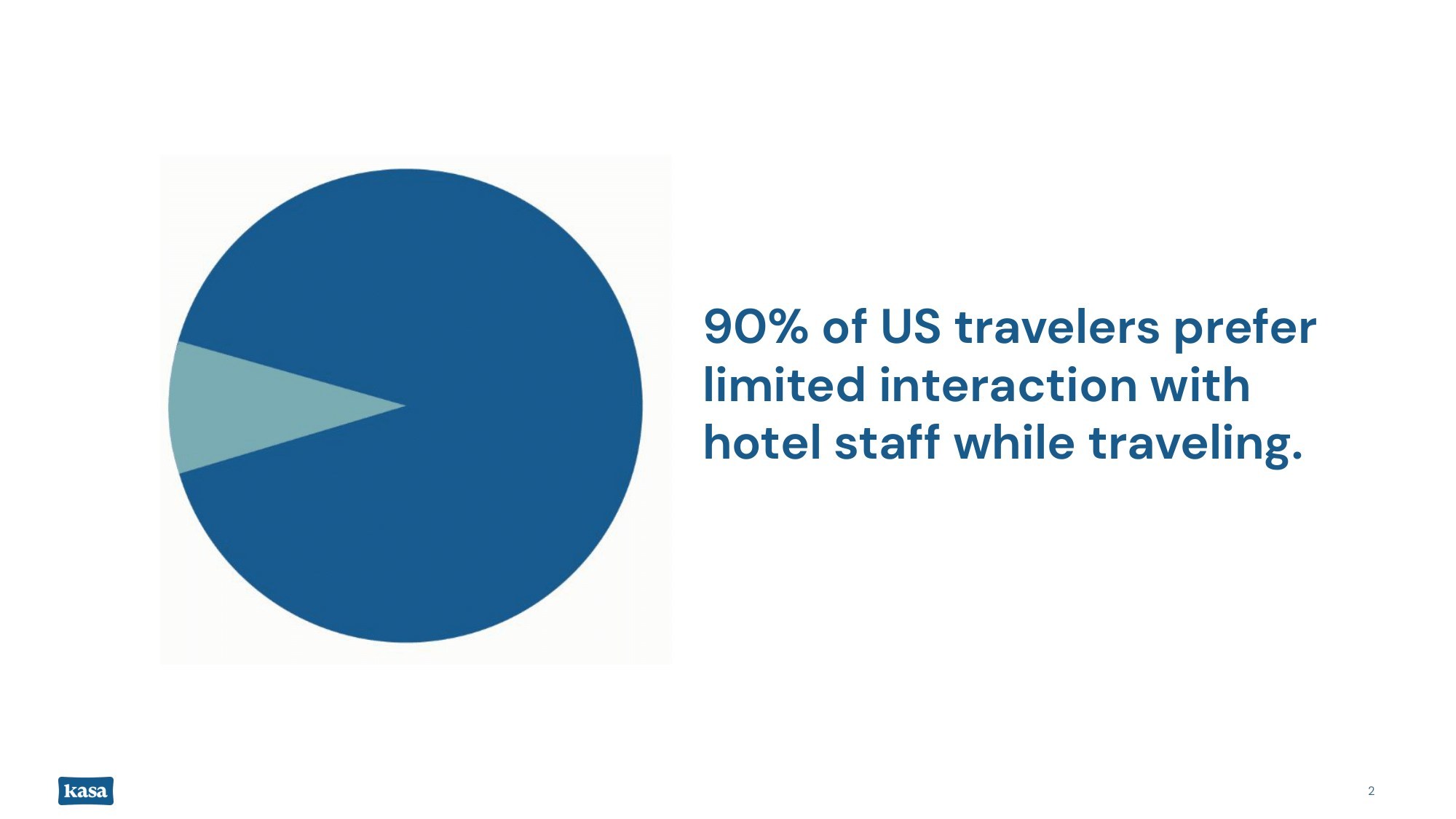SAN FRANCISCO – A new study of a representative sample of U.S. travelers from Kasa Living, Inc. – a national tech-powered, flexible accommodations brand and operator – reveals that a vast majority (90%) prefer limited interaction with hotel staff.
The findings also indicate that frequent travelers, business travelers, and younger generations are leading the charge for the self-directed experiences that tech-enabled accommodations allow, as well as the decreasing need for traditional accommodations amenities.
“This data supports what we have seen from Kasa guests for the past several years: Flexibility comes first,” said Roman Pedan, CEO at Kasa. “Especially in a remote and hybrid world, travelers are taking control of how and where they work and play, and the industry must adapt to meet those needs.”
Additional key takeaways include:
Travelers favor versatile locations and fewer customary processes.
For today’s travelers, the best accommodations can meet a range of needs, from families on vacation to professionals working remotely.
- 98% of respondents agreed with the above sentiment, while 57% expressed strong agreement.
In-person check-in is taking a toll, leading younger travelers to devalue the process.
- 73% recalled unfavorable experiences with in-person check-in, including overlong processes (44%), incorrect information (32%), and staff that was unfriendly (31%) or altogether absent (22%).
- 47% of Millennials rated front-desk check-in and room service as low priority, compared to 34% of Gen X and 22% of Baby Boomers.
Guests gravitate toward tech-forward travel experiences.
Travelers of all ages appreciate the convenience and flexibility of virtual travel planning, with younger travelers showing particular interest.
- 97% of respondents preferred to handle at least a portion of trip planning through an app or website.
- Gen Z and Millennials are ~2x more likely to prefer virtual check-in through an app or website than Gen X or Boomers.
Those who travel most are keen on digital.
- 99% of travelers planning 5+ trips in the next 12 months said they preferred to substitute in-person interactions with digital experiences.
A self-directed experience outweighs in-person interactions with staff, especially for younger guests.
- The majority of respondents said they preferred a flexible, hands-off approach to customer service over one that requires in-person interaction, including 62% of both Gen Z and Millennials.
Traditional amenities go unused as hotels fail to meet basic needs.
Travelers are outgrowing conventional offerings like room service, front-desk staff, and bellhops, along with building amenities like pools and gyms.
- 61% of upcoming business or “bleisure” travelers said these services have limited appeal, and 34% of travelers overall agreed.
While guests ignore unwanted extras, basic concerns like privacy and quiet go unaddressed.
- 56% of respondents reported using only some of the available amenities, including 17% who typically used just a few or none at all.
- Of the 81% of travelers who had encountered disruptive hotel guests, 70% took action. But younger guests indicated reluctance to complain: only 47% of Gen Z and 59% of Millennials took action, compared to 70% of Baby Boomers.
Methodology: The Kasa Survey was conducted by Wakefield Research between June 23rd and June 28th, 2022, among 1,000 U.S. travelers, defined as those who intend to travel overnight for business or leisure in the next 12 months. Participants received an email invitation and filled out an online survey. This survey was weighted to ensure accurate representation of US travelers.
Results of any sample are subject to sampling variation. The magnitude of the variation is measurable and is affected by the number of interviews and the level of the percentages expressing the results. For the interviews conducted in this particular study, the chances are 95 in 100 that a survey result does not vary, plus or minus, by more than 3.1 percentage points from the result that would be obtained if interviews had been conducted with all persons in the universe represented by the sample.
About Kasa
Kasa Living, Inc. is a tech-powered, flexible accommodations brand and operator founded in San Francisco in 2016 by Roman Pedan. The company partners with real estate owners to transform units at multifamily and hospitality properties into professionally managed accommodations called Kasas. With technology and deep industry expertise – including professionals who previously drove growth at firms including Airbnb, KKR and Apollo – Kasa operates these accommodations and delivers reliable, high-quality, independent experiences to guests of all types. For more information, visit http://www.kasa.com.


